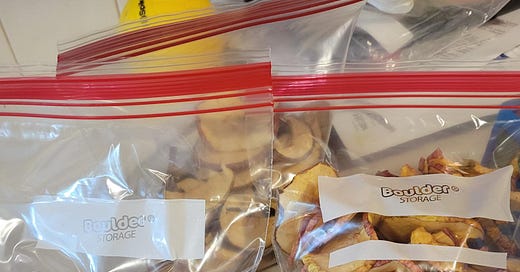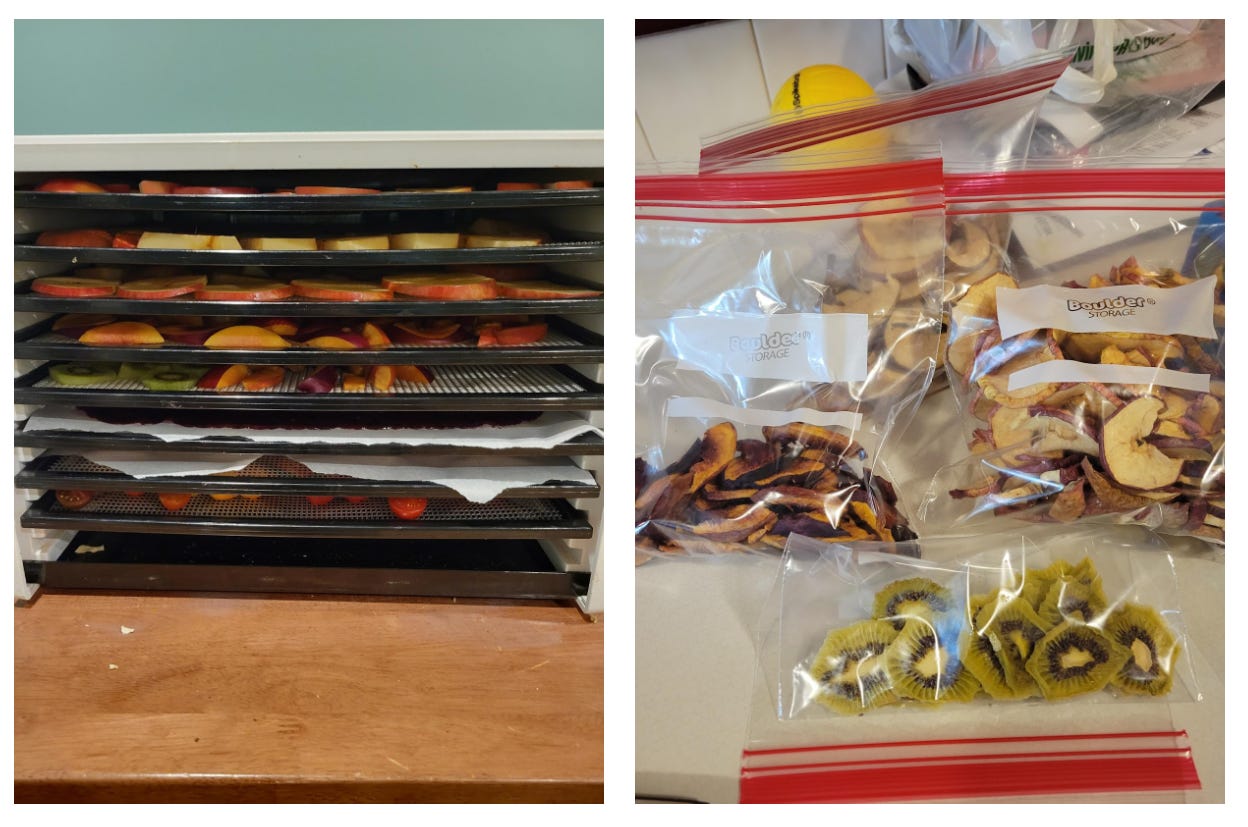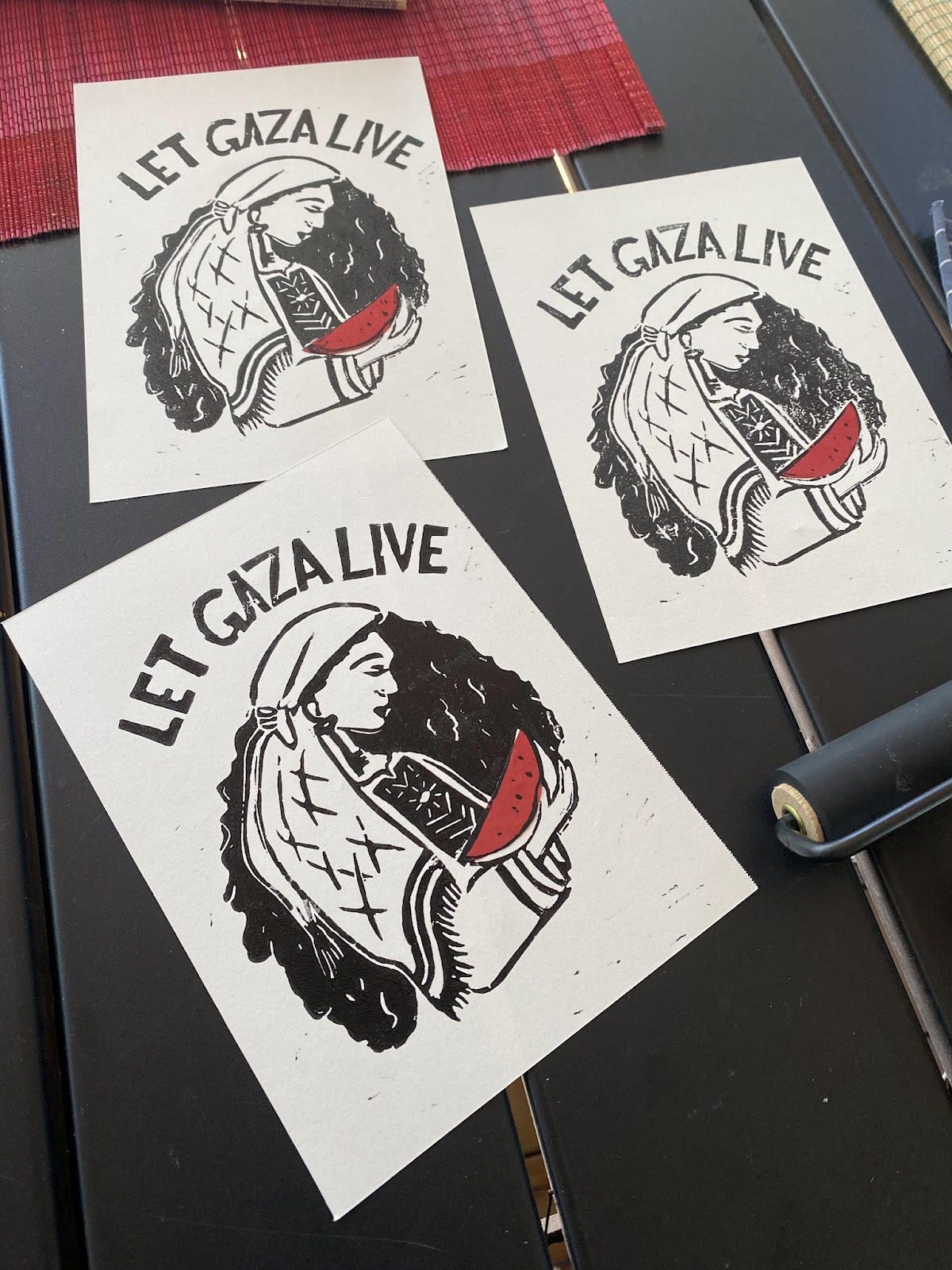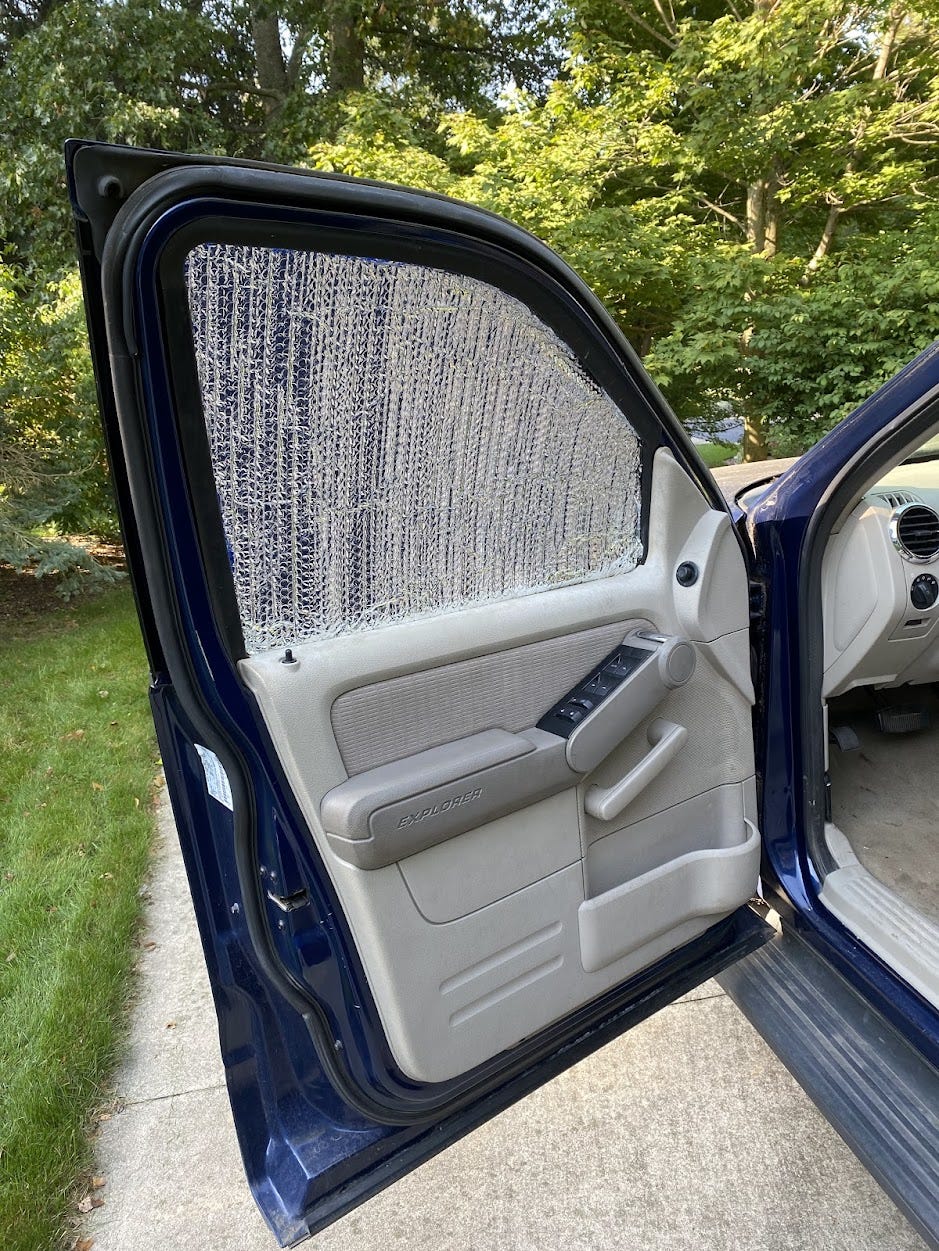As you may or may not know, I’ve been taking a… “temporary retirement” since I finished my last job in April. Or maybe it’s not so temporary? Echoing what Lagata said in this interview, I’m on a journey of finding a lifestyle that is sustainable for myself, for my community, and for the planet. I’ve been able to make this possible through a combination and privilege and a skillset of extreme frugality and resourcefulness that I’ve gradually built up. I’m making this blog post now to give you a peek into my life as of late - keeping in mind that there’s no such thing as an average week for me.
A few questions have been going through my mind the past six months: Am I “unproductive”? Am I a “burden on society” since I’m making use of some community and government resources for low-income people? After sharing this “week in my life”, I will discuss the concept of work and unpaid work and hopefully stimulate some new thoughts for you!
Monday:
I worked from home in the morning with D who had come for a visit. I spent this time transcribing an interview with a Ukrainian friend that I’ll post here in a few weeks. For lunch, D and I went to the free community lunch in town. This lunch is prepared with food rescued from local area distributors that would’ve otherwise gone to waste. In the afternoon, we worked from the dog park. I took a few breaks to teach D’s dog a new trick - spinning in a circle. I’m working on developing data security guidelines for an online organizing project I’m part of. Next, we visited a café downtown and went for a walk that took us by the river. We went grocery shopping and made some fancy veggie burgers for dinner with mushrooms and cheese. In the evening, D and I did some dumpster diving (or ~urban foraging). Cleaning and prepping the food we collected took longer than the actual collection part. We focused on getting the fruit prepared for dehydrating. Preserving the large quantities of food felt like how we imagine homesteading. Through dumpster diving and dehydrating I’ve been able to cut down immensely on my grocery budget.
Tuesday:
I spent some time reading in the morning and then said goodbye to D. I monitored the fruits in the dehydrators and then spent several more hours prepping the vegetables. I continued reading a bit (I finished reading The Free People’s Village and I definitely cried). I then took a nap. In the late afternoon, my parents came home from their travels and we went for a walk. In the evening, I worked on some linocut art and continued editing the interview with my Ukrainian friend. I ended the day with more reading (I started reading The Seed Keeper). I’ve found that I like the rhythm of having a long day full of activities followed by a more restful day. Monday and Tuesday were definitely examples of that.
Wednesday:
In the morning, I went to the post office to send a watercolor painting to a friend and four of my Let Gaza Live prints to an art store that bought them. Afterward, I ate at the community lunch, staying a long time to talk to community members there. I had some time to spare before my physiotherapy appointment so I checked out an exhibit at a free art museum nearby. After physio, I spent some time watercoloring and then had a one-on-one mentoring session where I received some advice on developing a style for my writing. After dinner, I had an online coworking session, working on an outline of data security guidelines with fellow organizing group members.
Handmade linocut prints I made as a fundraiser for Gaza relief efforts. $15 each. DM me if you’re interested!
Thursday:
I started the day by picking up an x-ray CD from one of my doctors and then stopped at the hardware store to buy supplies. My morning project was cutting reflective insulation to fit my car windows to block out light when stealth car camping. I then had lunch and did some leftist theory reading for a mentoring program I’m in. Mid-afternoon, I drove an hour into the city for a doctor appointment. Since I was going all the way there, I figured I’d stayed there the rest of the day and into Friday. After my appointment, I dropped off some rescued vegetables that would be used for Friday’s Food Not Bombs distribution and then went over to my friend’s place where I’d sleep on the couch. I went for a quick run before we attended a fundraiser evening for a local mutual aid group. I won a gift certificate to a pub in a raffle and immediately put it to use with a couple of friends.
Friday:
My host had to go to work early, but I was able to hang out in their apartment for a while. I dedicated most of the morning to personal writing and some leftist theory reading. For lunch I had instant noodles with some of the vegetables that I’d dehydrated on Tuesday. After lunch, I continued writing, this time working on the blog interview at the public library. Mid-afternoon, I went to someone’s house to help with food prep for Food Not Bombs (shucking corn and boiling tomatoes) and then I drove the food to a city park where we distributed it and ate with the community. Finally, I drove an hour back home to end the day. Even though it was only 7pm when I got home, I was exhausted and ready to go to bed.
Reflections
As I’ve been on this journey, I’ve been thinking about whether what I’m doing is “work”. I’ve been thinking a lot about the work that people do without getting paid. I’ve been thinking about what type of people tend to do this work. I’ve been thinking about how society views these people and their work.
Work:
activity involving mental or physical effort done in order to achieve a purpose or result.
a task or tasks to be undertaken; something a person or thing has to do.
Perhaps this blog, which currently only has 24 subscribers, is not filling a need of the community. But it is helping at least a few of us develop our understanding of the world around us. It’s helping me develop my writing skills for sure. Is that worth something?
I spent several hours this week working with like-minded people to develop a national organization. This organization will connect left-leaning folks organizing in mutual aid, coops and other grassroots collectives. It will support organizers with networking, education and wellness work. While the organization is still in its beginning growth stages, we are all learning important lessons as we go.
I also spent some time at communal free meal projects this week. In some cases I helped with food prep, at other times I went as an ordinary attendee. Even in the latter cases, myself and others mutually benefit from the connections we make with each other, countering the under-recognized issue of social isolation in many communities.
A majority of my time this week was spent caring for myself; whether that was feeding myself, resting, exercising, doing physical therapy or visiting a doctor’s office. Hear me out - but I hope that me being alive and less disabled for longer will have a net positive impact on my community! That has value, right? So where is the line drawn?
I feel like society maintains a harsh duality of attitude towards unpaid activities. As a concept, most of us would say that caring for our family members, volunteering in our communities and having hobbies is important. Our economic system imposes a different reality though: it tells us that the only activity that actually contributes to society is that which pays money.
Even though it lays the foundation for a thriving society, unpaid and underpaid care work is fundamentally invisible. It is radically undervalued and taken as a given by governments and businesses. It is often treated as ‘non-work’, with spending on it treated as a cost rather than an investment. - Oxfam
Studies and articles, such as the one quoted above, have highlighted the undervalued nature of care work. When they say ‘care work’, they usually mean cooking, cleaning, shopping for food and providing transportation to medical appointments; often on behalf of children, elderly, sick or disabled.
I want to suggest an expansion of the definition of care work to include activities that build and care for ourselves, our community, and our planet.
So, how should we move towards a world which better values the expanded definition of care work? Am I suggesting something like universal basic income or socialism? I don’t have the exact solution, but something I like to imagine is a small-scale community that decides what its needs are and distributes the work according to ability. On the surface, most of our communities seem a long way off from this. But I’m finding that when you dig deeper, when you get involved in different groups, the resources and opportunities often appear. Here, the first step might be resisting the messages from our economic system. At the same time, further work needs to be done to make such lifestyles more accessible for everyone.
My next two questions then might be:
Are my activities contributing to society in a level appropriate to my abilities?
Have I been properly compensated or recognized for this work?
Whether or not we earn money for our daily activities, I think these are questions we could all gain from asking ourselves.







I love your proposed expanded definition and I think I'm on board with it. Also really enjoying reading your writing lately - appreciating how you write with clarity and avoid overcomplication.